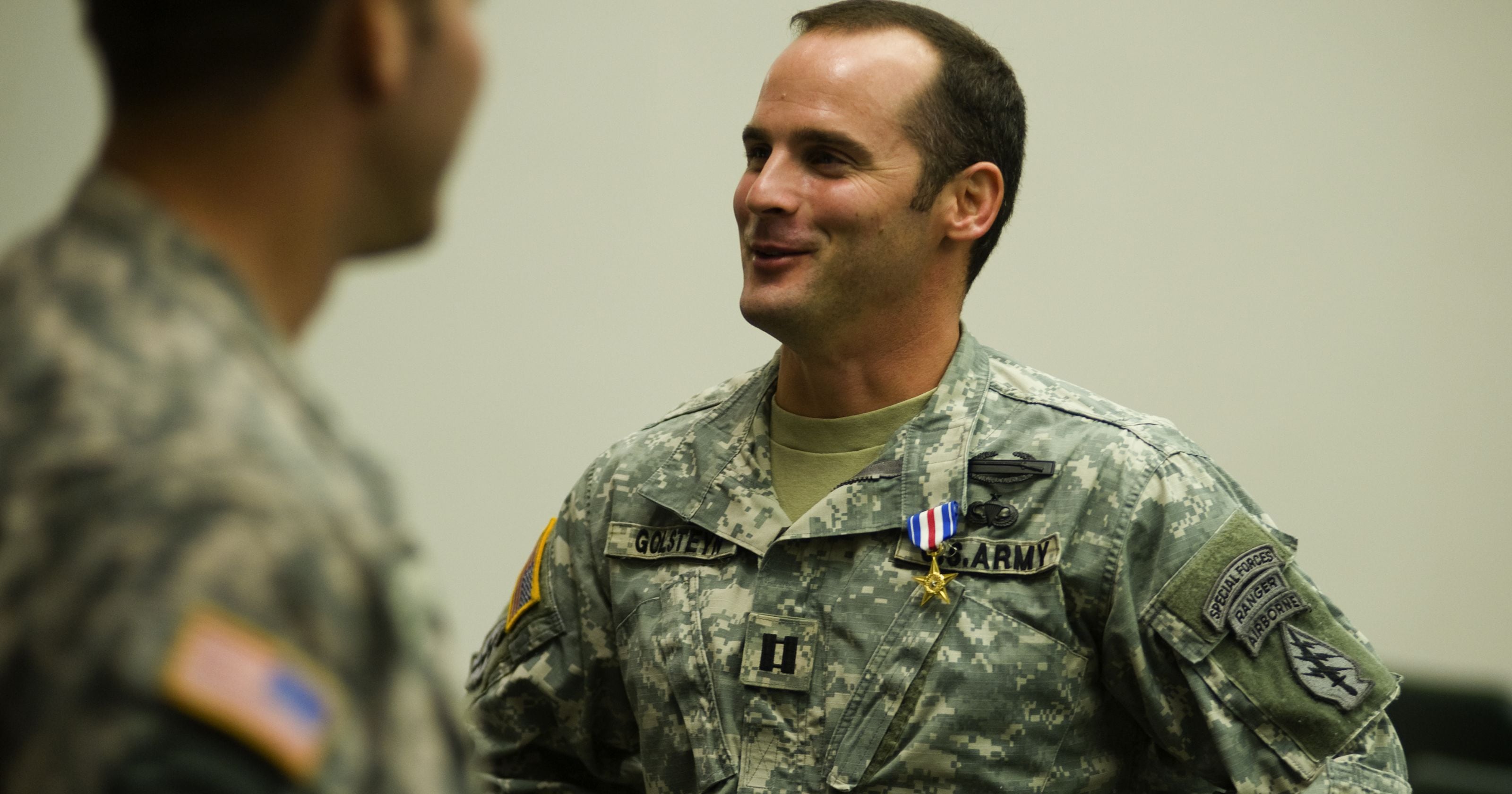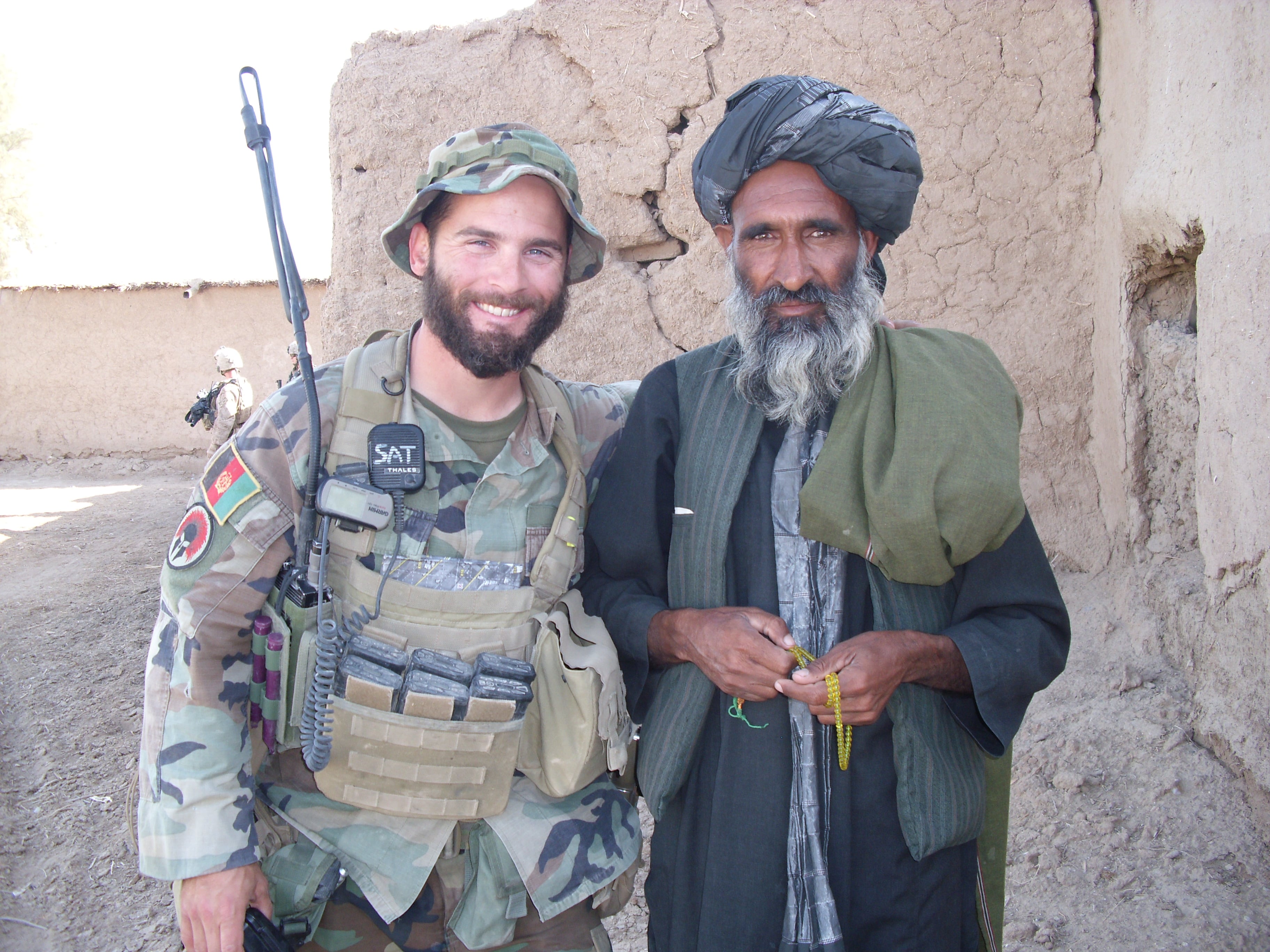President Donald Trump’s recent tweets in seeming support of a former Green Beret major who was recently charged with murder create a thorny path for attorneys and commanders all the way up to the secretary of the Army.
Last week, the Army preferred a murder charge against Maj. Mathew Golsteyn in connection with the death of an alleged Afghan bomb-maker he and his soldiers captured during their 2010 combat deployment.
Within days of the charges being reported, Trump posted the following tweet:
That has raised questions over whether Trump will step in to decide the case before its prosecuted, if he’s simply learning more about the high-profile affair or if he could unduly influence commanders beneath him as they carry out the legal process.
“Trump saying, ‘hey, I want to take a look at this case,' is technically within his authority,” said Phil Cave, a retired Navy judge advocate general now in private practice specializing in military law.
Where it gets muddy is whether he tries to put his weight on those below him in the chain of command or if he simply took the case himself as commander in chief.
“The question becomes what influence, if any, does this have on the lower commanders making the decisions,” Cave said.
Golsteyn’s case already has quite a few twists, turns and delays. The alleged incident took place in the midst of heavy fighting during an arduous 2010 deployment that saw its fair share of U.S. deaths and casualties.
The first indications that the major may have been involved in the alleged killing didn’t surface until a 2011 interview he had with CIA representatives in which he said he’d killed the man.
He told the interviewers that after repeated attacks, his unit captured the alleged bomb-maker, who was identified by locals as Taliban. Those same witnesses feared the man would retaliate against them.
Golsteyn and another soldier then allegedly took the suspected bomb-maker off base, shot him and buried him.
He returned the same night with more soldiers to move the body into an on-base burn pit.
The subsequent investigation resulted in administrative action recommending his discharge but no criminal charges.
Golsteyn remained in a sort of legal limbo on administrative leave. He saw his Silver Star, earned during the same deployment, and his Special Forces tab revoked.
Then, during a 2016 interview with Fox News, Golsteyn again recounted the alleged events of the man’s death. That triggered a new investigation, which ultimately resulted in last week’s murder charge.
RELATED

Colby Vokey, a retired Marine JAG who is now a civilian attorney specializing in military law, said that even without Trump’s tweet, the case has been complicated by the length of time the Army has taken, the first investigation that wound up in an administrative penalty, and perceptions that the Army went after this because of bad publicity.
Recent past presidents such as Barack Obama and George W. Bush have made comments on military investigations early in the process that caused public stir.
Notably, Bush learned of reports that Marines had killed dozens of Iraqi civilians in Haditha in 2005 from media reports and said his administration would look into the matter.
Obama previously made comments that those found guilty in military sexual assault cases should receive dishonorable discharges.
Numerous members of Congress also have made remarks about alleged incidents and, later, investigations involving military misconduct.
Those have raised allegations of unlawful command influence, predominately from defense attorneys, as their clients could face prejudicial treatment in court proceedings.
Vokey pointed to Trump’s comments regarding the case against Bowe Bergdahl, the soldier who was captured by militants in Afghanistan in 2009 after deserting his post and held until 2014.
Trump’s negative comments, such as calling Bergdahl “a dirty rotten traitor,” caused delays in his sentencing as attorneys argued that the soldier couldn’t get a fair hearing due to comments by the commander in chief.
In the case of Golsteyn, Trump’s comment could seem to hinder the prosecution through the perception that the president might be influencing the chain of command.
That, Cave said, would mean the chain would have to push back up, through the chief of staff of the Army and secretary of the Army, to tell the president that he’s affecting their case.
On the other end, though, the supportive comments could technically benefit the defendant, as they might actually create unforeseen consequences.
“One of the things we think about all of the time, what is the likelihood people would jump the other way to ensure they don’t appear to be influenced?” Cave said.
For instance, a commander or judge, wanting to counterweight the perceived support from the president, could be more deferential to the prosecutor, he said.
However unlikely, the best course for everyone might be if the president kept his opinions to himself.
“Quite frankly, however, I think it doesn’t matter whether he likes or dislikes the person. [He] either takes jurisdiction over the case and decides what to do or leaves it alone,” Cave said. “The problem is, he tweets about it.”
Todd South has written about crime, courts, government and the military for multiple publications since 2004 and was named a 2014 Pulitzer finalist for a co-written project on witness intimidation. Todd is a Marine veteran of the Iraq War.




